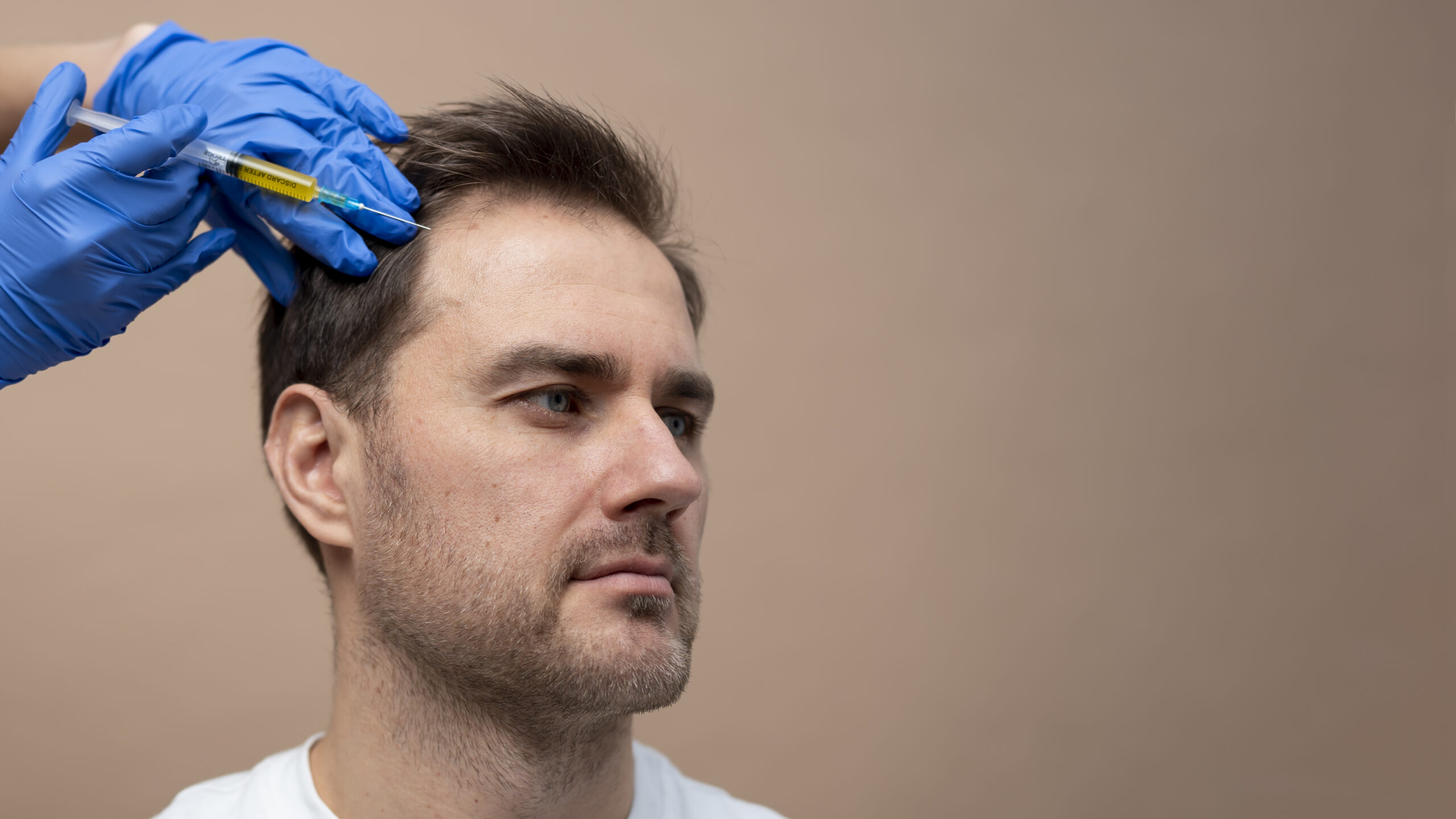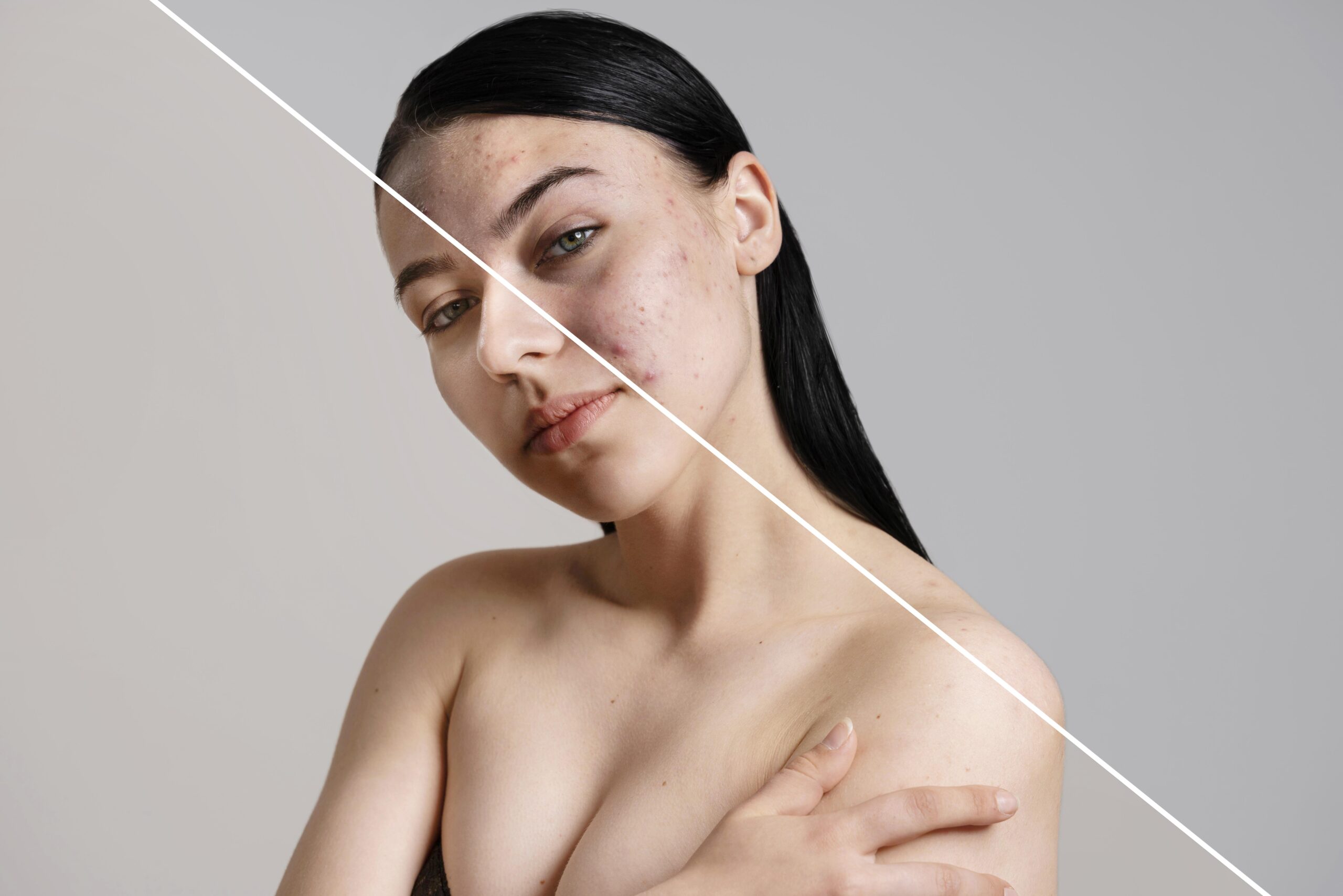Micro-needling has emerged as a promising solution for treating acne scars, capitalizing on the skin’s natural healing abilities to improve its texture and appearance. Acne scars, which are often the aftermath of severe acne, can be distressing and challenging to treat. They occur when acne breakouts penetrate the skin deeply and damage the tissues beneath it. Micro-needling offers a minimally invasive solution by inducing the production of collagen and elastin, which are crucial for the skin’s repair process. Here’s how micro-needling addresses acne scars:
Mechanism of Action
- **Collagen Induction**: The primary mechanism through which micro-needling improves acne scars is by promoting collagen synthesis. As the micro-needles create tiny punctures in the skin, they initiate a wound healing response, leading to the formation of new collagen fibers. This new collagen can help fill in and smooth out acne scars, making them less noticeable.
- **Elastin Production**: Alongside collagen, elastin production is also stimulated. Elastin helps the skin maintain its elasticity, ensuring that the newly formed skin is supple and can bounce back to its original form more easily.
- **Skin Remodeling**: The process of micro-needling leads to the remodeling of the skin structure. Over time, as the skin heals and new collagen matures, acne scars can become less deep and pronounced, leading to a smoother skin surface.
- **Improved Skin Texture and Tone**: By enhancing collagen and elastin levels, micro-needling not only targets acne scars but also improves the overall texture and tone of the skin. It can reduce the appearance of pores and make the skin appear more radiant and youthful.
Clinical Efficacy
Numerous studies have supported the efficacy of micro-needling in treating acne scars. Patients with various types of scars, including boxcar, rolling, and even some forms of ice pick scars, have observed significant improvements in the appearance of their scars after undergoing multiple treatment sessions. It’s worth noting that the success of micro-needling can vary based on the severity and type of acne scars, as well as individual skin types.
Advantages of Micro-needling for Acne Scars
- **Minimally Invasive**: Unlike some other scar treatment options, micro-needling is less invasive and comes with a shorter recovery period.
- **Safe for Various Skin Types**: It’s safe for most skin types and colors, making it a versatile option for a wide range of patients.
- **Enhanced Product Absorption**: The micro-channels created during the treatment improve the absorption of topical treatments, potentially enhancing their effectiveness in scar treatment.
Considerations
While micro-needling is effective for many, it’s important to have realistic expectations and understand that multiple sessions may be required to achieve desired results. Additionally, the procedure should be performed by a trained and experienced professional to minimize risks and ensure the best outcomes.
In conclusion, micro-needling presents a promising and effective option for reducing the appearance of acne scars. Its ability to stimulate the skin’s natural repair processes not only targets scar tissue but also enhances overall skin health and appearance.






